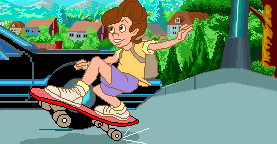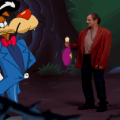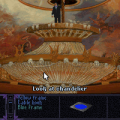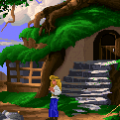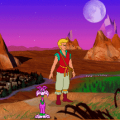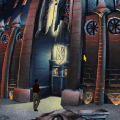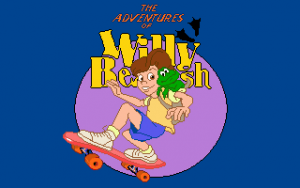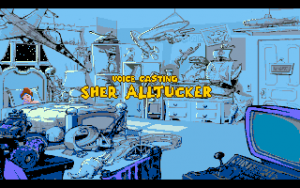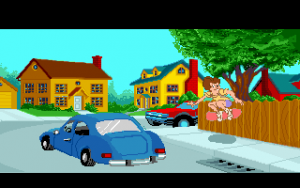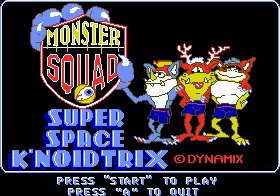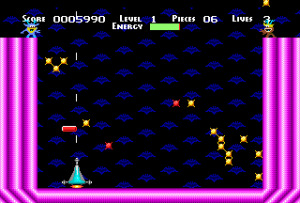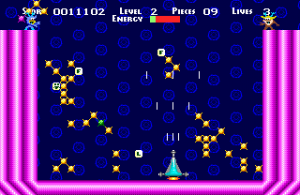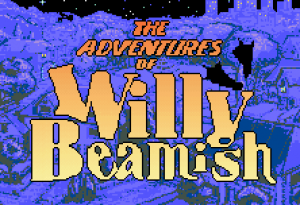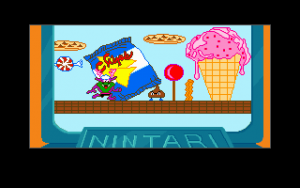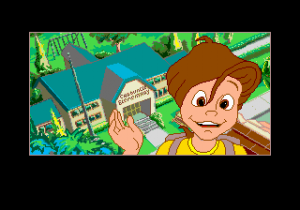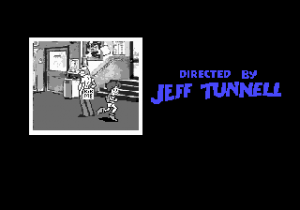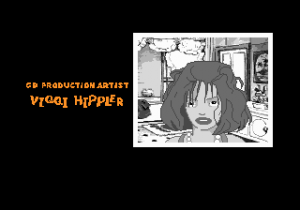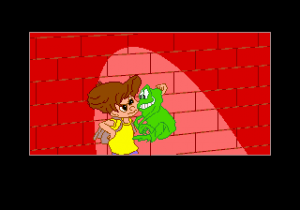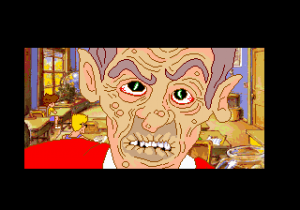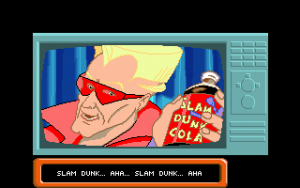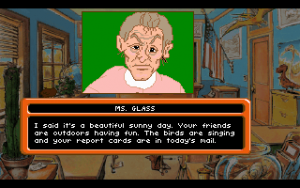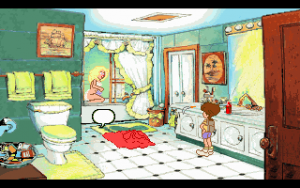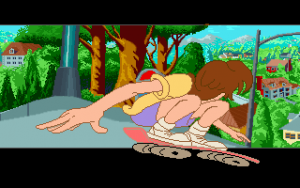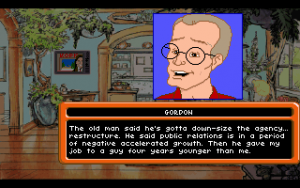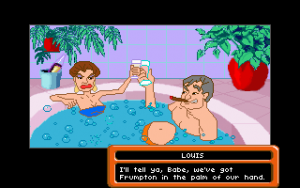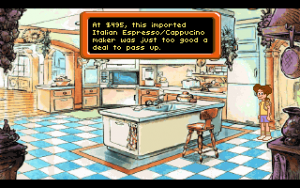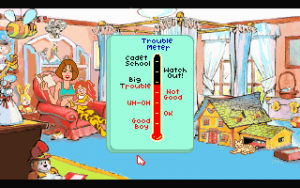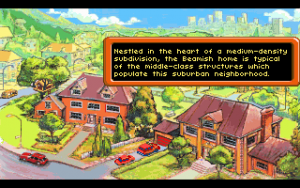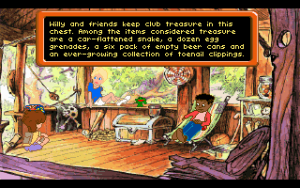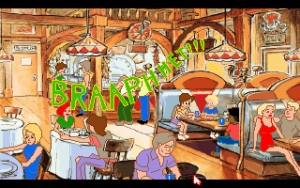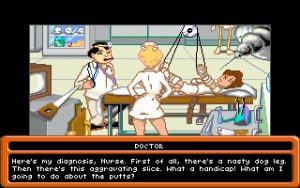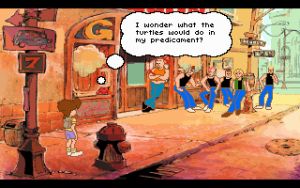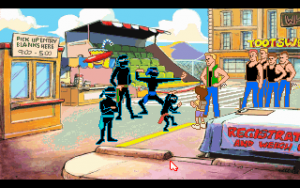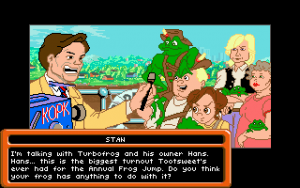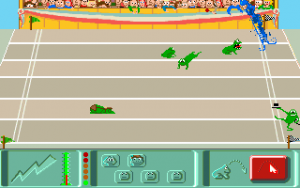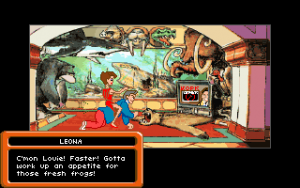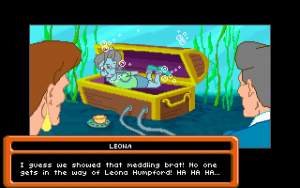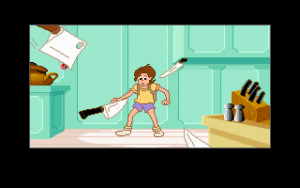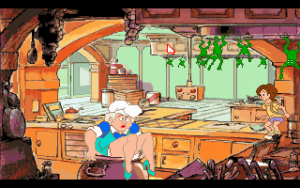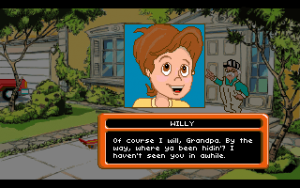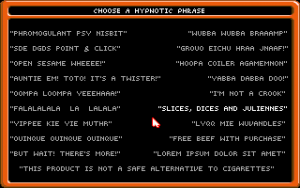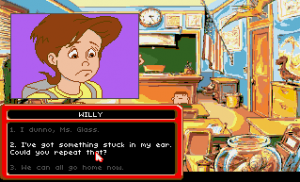Since the dawn of video gaming, man has asked, how can we create a truly interactive movie? The first attempts were laserdisc titles like Dragon’s Lair, which eventually evolved into the terrible full motion video games that permeated the CD-ROM platforms in the early-to-mid ‘90s. Most of these were action-based titles, but at the time, the most cinematic genre was the graphic adventure. The Adventures of Willy Beamish, the third and final adventure game developed under the Dynamix team before they were drafted to develop Space Quest V, aspires to be a fully interactive Saturday morning cartoon, albeit one with a more adult sense of humor. Its bright, painted cel-style graphics and animated cutscenes put it above anything else at the time.
The story of Willy Beamish, a typically mischievous twelve year old, begins on the last day of the school year, when his pet frog escapes and steals his principal’s toupee. After getting stuck in detention, he starts his summer vacation in earnest. Willy thinks of only one thing – getting enough money to enter the Nintari World Championship. While this seems like it would make for a similar plot to the movie-cum-Nintendo-ad The Wizard, this thread lies low for the most of the game, while the actual story concentrates on an artificial sweetener magnate trying to take over the city of Frumpton by flooding it with sludge. Somehow, both the lives of Willy’s frog and Willy’s father are at stake, putting considerable weights on the shoulders of our hero.
Willy’s family consist of the typical middle class family clichés – his stern, exhausted mother Sheila, his newly unemployed father, his bratty little sister Brianna and equally bratty valley girl-esque sister Tiffany. Most of their interactions take place at the dinner table, with occasional interludes from TV news, an interesting plot development mechanic which feels quite natural in the context of the story. There’s also substantial effort put into the environment descriptions, which tend to deliver more chuckles than the rest of the game. Nearly every object in Willy’s home has some kind of humorous story behind it, or a comment that satirizes American middle class consumerism by remarking about the uselessness of such pricey crap.
While the art style recalls something along the lines of Warner Bros. or Disney, the sense of humor is closer to The Simpsons. In contrast, the dialogue is rarely witty or funny, but the situations Willy finds himself in are just as consistently bizarre. Talking Austrian super frogs? Vampire baby sitters? Snap happy Japanese tourists who also happen to be ninjas? In the long-standing tradition of American animation, several supporting characters are patterned after real life personalities, including news anchor Stan Lather (Dan Rather), British chef Julia Childish (Julia Child), and the villain, Leona Humpford (evil real estate investor Leona Helmsley).
The interface is similar to Dynamix’s previous games. While those both use a first person perspective, Willy Beamish uses third person. There are only two icons – a general purpose “interact” icon, as well as a magnifying class to look at stuff. Unlike most other adventures, you can’t directly command Willy’s movements – instead, he only moves when interacting with something or walking to a different screen. On the flip side, this makes it feel more like a cartoon and less like a game, because each screen has a unique perspective and equally unique sprites. The animation is far from smooth, but for a piece of software made in 1991 and initially developed for space conscious floppy disks, it still looks mighty impressive.
Dynamix adventure games have a reputation for being more… well, dynamic that the standard, linear experience of most other titles. Right at the beginning, when Willy is stuck at detention, you can choose to sneak out, although if you fail, you get sent to the principal’s office. On the other hand, you can also wait it out, which is a much safer, easier option. But then the issue of Willy’s report card comes up – if you snuck out early, you could steal it to conceal it from your parents, but if you stayed in detention, your family gets to it first. And if they do see your report card, then you have to deal with stealing back the key to your game system. And this all occurs in the first chapter.
The story takes place over the courses of four days. The game runs in real time and it’s possible for a day to end without having accomplished all of the necessary tasks, if you take too long. While the first and last days are substantially longer than the rest, there are more than a few alternate paths, depending on the actions you’ve taken earlier on. Of course, not all of the options are correct – Willy has a “trouble meter”, which shows how close he is to getting sent away to military school. Make too many wrong choices, and your adventure will end prematurely. Naturally, the most fun ones are the ones that get you in hot water. The ghost of Willy’s grandfather will occasionally pop in and act as his conscience, which can clue you into the proper response.
But that’s not always consistent. The dialogue trees are poorly constructed, where a wrong answer can immediately end the game, or at least increase your trouble meter. It would seem like refusing to give your dog food at the dinner table is the proper way to behave, but instead you get scolded for it. Heck, even walking in the wrong room at the wrong time has the same effect. The puzzles are generally of the obnoxious trial and error type. In one area when you’re supposed to be sneaking around, you can mess with a suit of armor, which will, unpredictably, fall apart and cause you to be captured by the villains. The way to solve this is by cushioning the armor with a tablecloth, but how are you supposed to know this without dying first? Certain Sierra games like Space Quest or Leisure Suit Larry could get away with these because the death scenes were funny. But having a twelve year old kid tied up and drowned? Not so hilarious.
The replayability helps make up for the fact that the game’s on the short side, but there are also more than a few moments where you can totally screw yourself over. The worst happens early on, when you cut yourself with a knife. If you don’t medicate it and stick a bandage on it, the consequences won’t pop up until the Nintari championship right at the end, when you’ll be too injured to play properly. The game gives fair warning for this one, but if you forget to practice playing Nintari – you need to play the system at least twice, which is an easy thing to overlook – then you’ll also suffer a similar fate, and need to reload at a much earlier point.
The Adventures of Willy Beamish was initially released on disk format for the PC, Macintosh and Amiga. The Amiga version is restricted to 32 colors. The Macintosh and PC versions both support 256 colors. A CD version was also released for the PC, with full voice acting for all characters. It’s all very good, especially the slightly coy, sarcastic narrator, who occasionally switches up accents on various descriptions for extra bits of flavor. The disk version uses static portraits in dialogue, which change depending on their mood. The CD version animates and lip synchs the text with the voices, but most of the alternate portraits are gone, leaving the same expression for every line of dialogue. Some cinemas are different, too, The opening in the disk version features the credits written on a chalkboard. The PC CD version shows the sun dawning over the neighborhood, as Willy gets ready for the day and skateboards to school. The Tootsweet commercial near the beginning features a MC Hammer wannabe in the disk version, but was changed to a beer commercial in the CD version, complete with scantily clad chicks in bikinis.
Willy Beamish was also one of the two Dynamix titles (the other being Rise of the Dragon) that was ported to the Sega CD. Though it suffers from the 64 color palette limit, it still looks pretty decent. The loading times are completely horrendous though, as it takes several seconds for Willy to respond to anything. By pressing the Start button, you can bring up a display of floating balls, which is supposed to keep you occupied during the load times. It features full speech, naturally, but the option for subtitles is gone. There’s a new intro again, this time showing different black and white pictures of Willy’s shenanigans, all of which are only found in this version. The intro music has been rearranged to feature a live electric guitar, which sounds excellent. The rest of the music, though, is only slightly improved over the Adlib FM synth in the PC versions. The intro segment with Willy and the principal is also slightly expanded. A few minor graphics have been added or changed – you can see “Sega Rules” carved into Willy’s school desk, and his portable game system is redrawn to look more like a Game Gear.
In the computer versions, whenever you play the Nintari, it just shows a cutscene of some fictional game called Monster Squad. The Sega CD version takes these characters and puts them in their own playable minigame called Super Space K’noidtrix. You control a ship on the bottom of the screen, as two monsters chuck clusters of rocks from the top. When these rocks hit the bottom, they’ll stick to the ground and hamper the movement of your ship. You take damage from getting hit, but if the rocks get stacked to the top of the screen, it’ll immediately end the game. Your ship can fire in three directions – straight up, or to the left or right, which helps clear out the rocks from all angles. As more rocks fall, the game eventually speeds up until you’re eventually overwhelmed. It’s interesting, although not particularly great.
Screenshot Comparisons
Intro Screenshots
